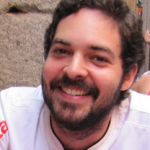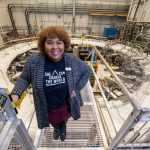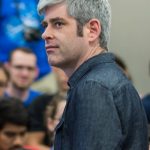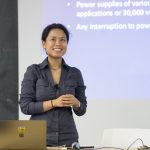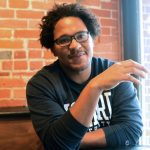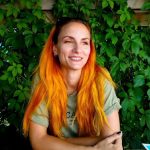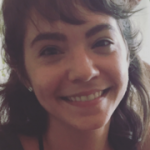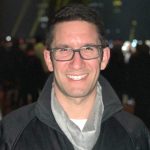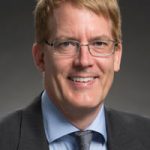Dr. Pedro Machado, Fermilab Theoretical Physicist
Dr. Machado is an associate scientist at Fermilab. He was born and raised in Brazil. He did his undergraduate work at Universidade Federal do Ceará (2007). He received his Ph.D. from University of São Paulo. Machado is a theoretical physicist working primarily in neutrino physics, and also in Higgs and dark matter physics. Before joining Fermilab, Dr. Machado spent few years in Madrid as a post-doctoral fellow, and as a Ph.D. student he visited Paris for a couple of years and Fermilab for six months. His work is focused on phenomenology: the interface between theory and experiment

Dr. Patrick Fox, Fermilab
Dr. Bruce Howard, Fermilab
Prof. Dan Hooper, University of Chicago and Fermilab Senior Scientist
Dr. Hooper is a professor at the University of Chicago and a member of Astrophysics Department of the Particle Physics Division at Fermilab. He received his PhD from University of Wisconsin.
He has written three books:
- At the Edge of Time: Exploring the Mysteries of Our Universe’s First Seconds
- Dark Cosmos: In Search of Our Universe’s Missing Mass and Energy
- Nature’s Blueprint: Supersymmetry and the Search for a Unified Theory of Matter and Force
Hooper has been part of Saturday Morning Physics for ten years. When not interacting with young scientists, he tries to figure out ways for Earth-bound experimenters to detect dark matter and dark energy directly in an experiment.
In 2017, Prof. Hooper was elected as a Fellow of the American Physical Society (APS).
Read more about Dr. Hooper here: http://home.fnal.gov/~dhooper/
Cindy Joe, Fermilab
Ms. Joe started at Fermilab as an accelerator operator and has been subsequently promoted to Neutrino Division Operations Support Group Member to run the underground facility for MINERvA and NOvA experiments. She earned a bachelor’s degree in physics from Reed College in Portland, OR.
Ms. Joe is deeply involved in the encouragement of young women to work in STEM fields. She said, “I think the most lasting and effective way to reduce the difficulties women and other underrepresented groups face in STEM is to normalize their presence and publicize their struggles.”
Find out more about Ms. Joe.
Ms. Joe gave a fantastic presentation on acceleration operation at Fermilab’s physics slam. Watch it now.
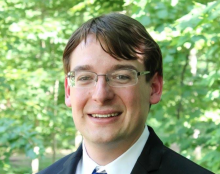
Dr. Evan Niner, Fermilab
Dr. Niner is the Deputy Facility Manager of the Test Beam Facility at Fermilab.
Dr. Bryan Ramson, Fermilab
Dr. Ramson is a postdoctoral researcher in the Fermilab Neutrino Division. He currently works as part of two large experimental collaborations at the cutting-edge of long-baseline neutrino physics: the currently operational Numi Off-axis Electron Neutrino Appearance experiment (NOvA), hosted by Fermilab, and the upcoming Deep Underground Neutrino Experiment (DUNE), also hosted by Fermilab. Howard Universityis his Alma-Mater and he earned his doctorate in Applied Physics on studies of nuclear anti-matter at the University of Michigan-Ann Arbor. Much of his graduate work took place as a visiting scholar on the Argonne/Fermilab particle physics experiment, E906/SeaQuest. Before going to the University of Michigan, he was a visiting scholar at the National Aeronautic and Space Administration from Howard University, primarily involved in the measurement of cloud properties in the vicinity of Washington, D.C. and the validation of a globally distributed robotic aerosol and cloud measuring system.
His current research interests involve the study of neutrino-nuclei interactions and the testing of new light sensing hardware to be included in DUNE. When he is not thinking about quarks and leptons, he enjoys reading, exercise, and video games.
Dr. Aleksandra Ciprijanovic, Fermilab
Dr. Ciprijanovic is a postdoctoral research associate in the Scientific Computing Division and with the High-Velocity Artificial Intelligence project. That project focuses on novel AI methods that allow us to qualify uncertainties and speed up work with complex simulations and real detector data.
Dr. Karri DiPetrillo, Fermilab
Dr. DiPetrillo is a Lederman Fellow at Fermilab, and works on the CMS experiment. She recently received her PhD from Harvard, working on the ATLAS experiment. As a PhD student, she spent most of her time looking for long-lived particles and working on the ATLAS Muon Spectrometer. Karri is originally from the Providence area and received her BS from Brown University in Physics.
Dr. Alexx Perloff, Fermilab
Dr. Perloff is a postdoctoral researcher for the University of Colorado Boulder and a member of the Compact Muon Solenoid (CMS) Collaboration at CERN. He received his BS in physics for UCLA and his PhD from Texas A&M University working on a search for the Higgs boson. As a graduate student, he also spent a great deal of time working on jet energy calibrations, both for current analyses and for detector upgrade projects. Today, Alexx’s research focuses on searches for supersymmetric particles as well as other exotic models of physics. He also works on the upgrade of the CMS L1 trigger system, focusing on track reconstruction and track-based objects. When not at Fermilab, Alexx enjoys swimming, biking, running, and rock climbing.
Dr. Joseph Lykken, Fermilab
Dr. Lykken is Fermilab’s Deputy Director of Research and leads the Fermilab Quantum Institute. A distinguished scientist at the laboratory, Lykken was a former member of the Theory Department, researching string theory and phenomenology, and is a member of the CMS experiment on the Large Hadron Collider at CERN. He received his Ph.D. from the Massachusetts Institute of Technology and has previously worked for the Santa Cruz Institute for Particle Physics and the University of Chicago. Lykken began his tenure at Fermilab in 1989. He is a former member of the High Energy Physics Advisory Panel, which advises both the Department of Energy and the National Science Foundation, and served on the Particle Physics Project Prioritization Panel, developing a road map for the next 20 years of U.S. particle physics. Lykken is a fellow of the American Physical Society and of the American Association for the Advancement of Science.




